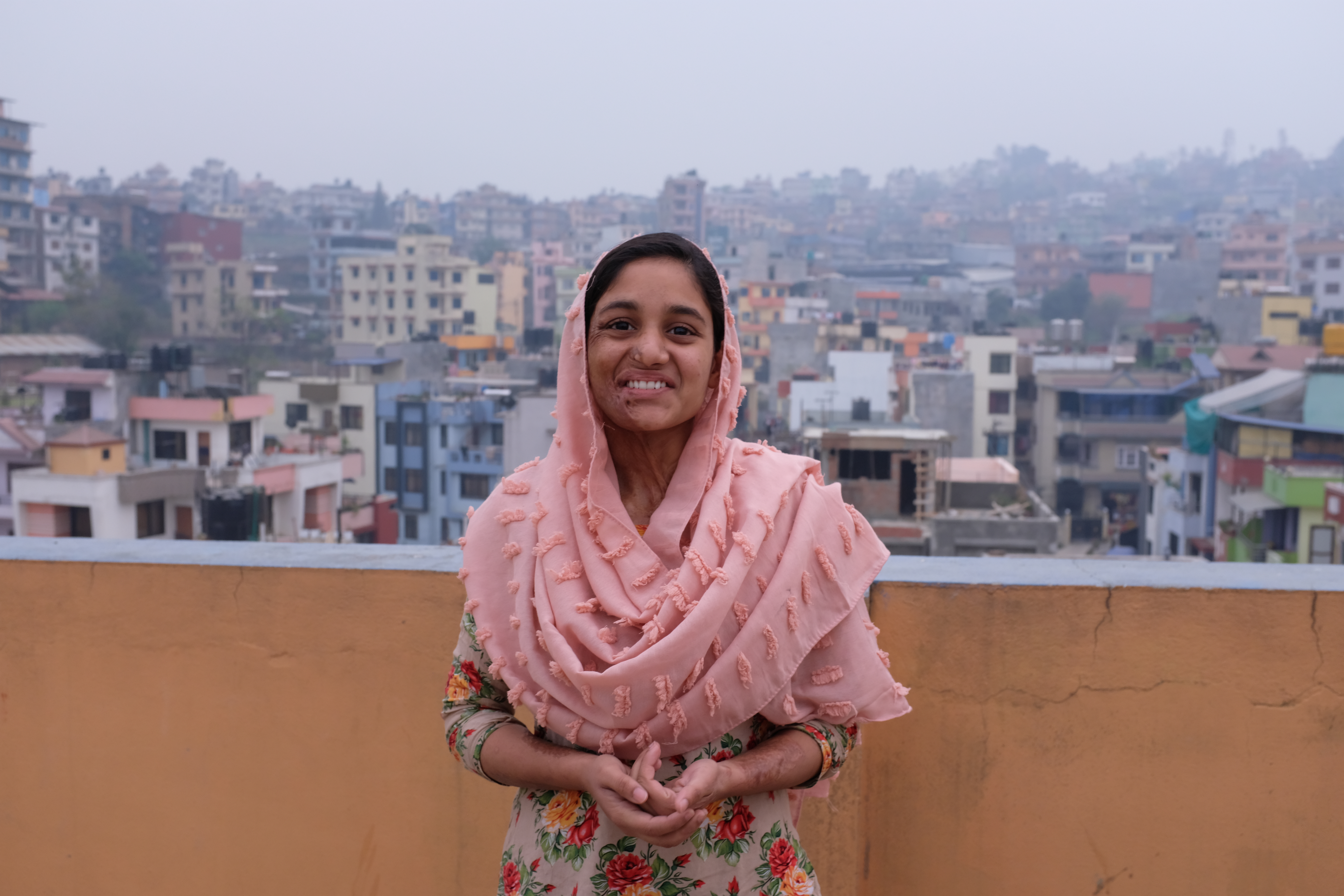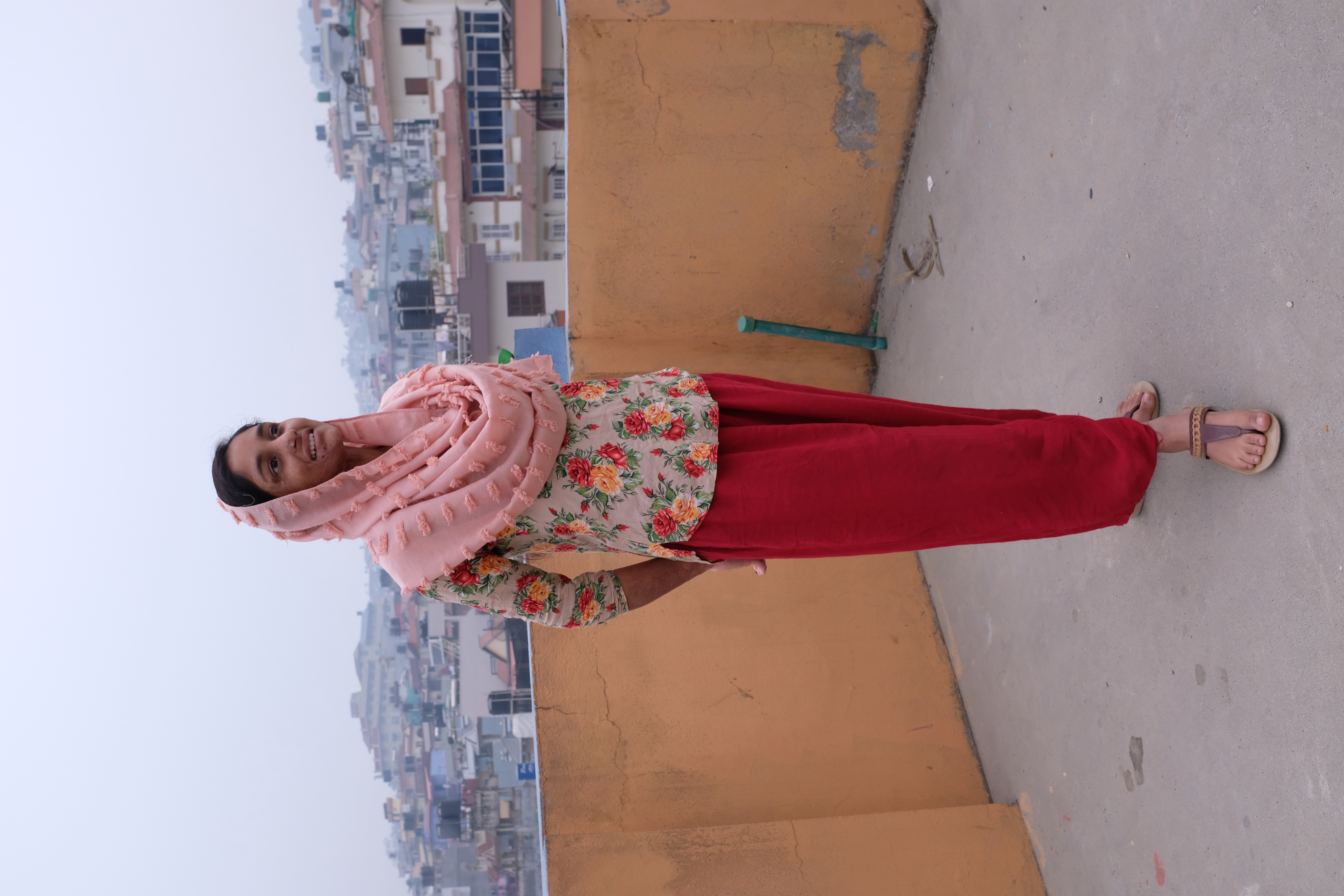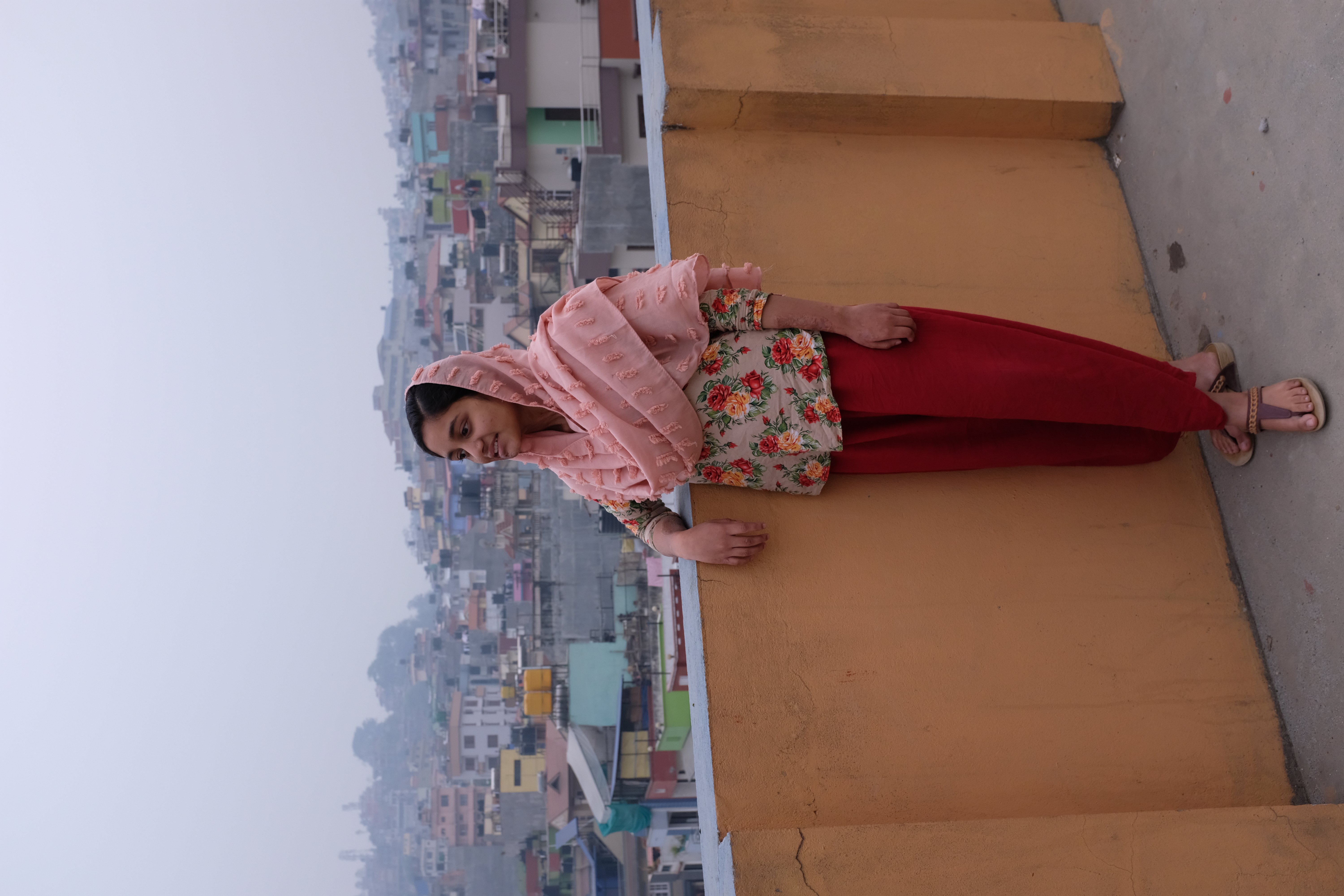For Muskan Khatun, a 17-year-old girl from the southern town of Birgunj, life stopped being ordinary about two years ago.
On 6 September 2019, when she was on her way to school, a teenage boy threw concentrated acid on her face after she turned down his love proposal. The boy and his two companions ran away, leaving Muskan paralyzed with excruciating pain on her face and neck.
The boys were set free after six months of juvenile detention. Muskan’s face, and life, changed forever. During her stay at Kirtipur Hospital in Kathmandu, she had already made up her mind—she would henceforth work to save girls from acid attacks and other gender-related crimes.
The way she emerged stronger from the trauma, and the courage she showed in lobbying with the prime minister in drafting harsher laws against acid attacks, have been widely reported. On 5 March 2021, the American Department of State conferred on her the prestigious International Women of Courage (IWOC) award.
“I was stunned to know that for a heinous crime like acid attack, our law mandated only three to eight years of prison. The jail term was determined based on the damage to the victim’s body,” says Khatun. She recalls two-and-a-half months at Kritipur Hospital, where she was referred by the Narayani Hospital of Birgunj. There, she realized that great injustice was being done to victims who suffered for life while the attackers walked free after a few years in prison and led normal lives. She resolved to lobby for a more just law.
From the hospital bed, with her bandaged right hand, Khatun wrote a letter to Prime Minister KP Sharma Oli, asking for stronger laws. “I had poured my emotions in the letter,” she recalls. “But I never got a reply.”
After several surgeries, Khatun was able to speak normally. She went to every forum to speak for justice for acid attack victims. “From then, I was determined to push for stricter laws to end such attacks,” she says. She and her family were under great pressure to stop speaking out. They even got life threats.
Among her many visitors in hospital, there was a girl with mangled hands who used to do chores with the help of her legs. “After seeing her, I got really motivated and encouraged,” Khatun says, adding, “I have learned that physical beauty is temporary; what makes us great is our struggle for a bigger cause.”
One day seven months ago, the then Attorney General Agni Kharel happened to hear Khatun talk on a television program. “As always, I was expressing my unfulfilled desire to meet the prime minister who had ignored my letter. But someone had heard.” She was excited when Kharel arranged an appointment with the prime minister.
In her meeting, she urged PM Oli to invite every acid attack survivor and listen to them. Shortly afterwards, the cabinet issued an ordinance that would punish even delinquent perpetrators and regulate the sale of acid and other concentrated chemicals.
Khatun’s initiative has been crucial in bringing about a bill (yet to be passed) proposing 20-year prison term and seizing of property of acid attackers, as well as greater restrictions on acid sale. (Acid attackers aged 10-14 years have to spend five years in juvenile detention while those aged 15-18 have to spend 10 years in such homes). The bill also proposes the government bear all of the victims’ treatment and education expenses and assure them jobs.
Despite the bill attacks on girls continue in different forms. On 23 March, a 19-years old girl in Kathmandu was burnt with kerosene by her boyfriend. “This is all happening because of impunity, poor implementation of law and lack of awareness,” Khatun tells ApEx. She is also lobbying for stricter laws against rape and domestic violence.
Khatun has been appealing to the government, political parties, civil society organizations and ordinary citizens to run public awareness campaigns across the country. She reckons people in rural areas are unaware about where and how to file a complaint or a lawsuit against the perpetrators.
“Initially, I wanted to become a medical doctor. But the attack changed it all,” she shares with ApEx. “Now I have a bigger purpose. I want to give the victims a voice. I want to work as a social worker and human rights activist.”
To her, a permissive attitude and lack of public awareness are helping the perpetrators. “We should come forward and speak up. Please do not remain silent, as these offenders attack us thinking we are weak and vulnerable,” appeals Khatun.















